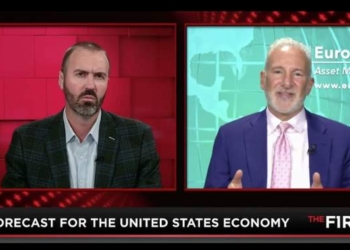
By Chris Brantner | Lifehack
Achieving financial success is not something that just happens. Maybe if you win the lottery or something, but for the average person like you or me, it comes from a series of small steps you take over a long period of time.
With each step, you form a new smart money habit. And with each smart money habit, you build towards financial independence.
So what sort of habits can you form to get on that path? Let’s take a look at smart money habits you can start today to get you closer to a financially independent future.
1. Avoid being “penny wise but pound foolish”
It’s tempting to try saving a couple of cents here and there when buying small items. However, that’s not where the real money is saved. You’re putting in extra effort for something that doesn’t move the needle.
You get the most bang when you’re able to cut down on your bigger bills. For example, finding a lower interest rate for your mortgage could save you $50+ per month. And cutting your transportation bill by purchasing a cheaper car or taking public transportation can provide large gains as well.
So, look at your recurring expenses such as housing, transportation, and insurance, and see where there’s wiggle room. It’s a much better use of your time than trying to pinch pennies here and there on smaller purchases.
2. When you want something big, wait
Impulsivity can get you in trouble in most aspects of life. Finances are no different.
It’s human nature to see something and want it right then and there. It starts as a kid in the checkout line at the grocery store, and it continues on through adulthood.
We get an idea in our head of something we want, and it’s hard not to go out and get it right then.
A good example is wanting a new car. Perhaps you’ve had your car for several years. It’s crossed the 100k mile mark. Maybe maintenance is due, and you’re annoyed that you need to replace the timing belt or purchase new tires.
So, you get the itch.
You start digging around online, and you realize you could trade in your current car for something newer and more exciting… all for a few hundred bucks a month. Then you get obsessed.
Here’s where you have to take a step back.
Your newfound obsession is clouding your judgment. Rather than giving in to the impulse, wait it out.
Set a timeframe for yourself. Maybe you come back to the decision three months down the road. See if the obsession lasts.
It might, but often, a funny thing happens. Often, you forget about it. And often, you find that the new car wasn’t a need at all.
The impulse faded. And you just saved yourself a ton of money.
3. Live smaller than you can afford
You finally get that big raise. And you want to celebrate – and why not?
You’ve been looking forward to this forever. And after all, it was all due to your hard work.
That’s fine, splurge a little. However, make it a one-time deal and be done.
Don’t get caught in the trap that just because you’re now making more money, you should spend more.
Too often, people get more money and feel like they that gives them the means to buy a bigger house, a bigger car… you know the drill. Resist.
The fact is that living smaller than what you can afford is one of the fastest ways to build savings.
But if you constantly upgrade as you begin to make more, then you’ll never get ahead. You’ll just build up more debt along the way and have just as little wiggle room as before.
4. Practice smart grocery shopping
Food… it’s one of the biggest portions of any budget. And if you’re not careful, it can be one of the biggest drains on your wallet.
But luckily, there are a few things you can do to ensure that you stay smart with your money when buying groceries.
Create a grocery budget
Set a strict weekly grocery budget. When you know how much you can spend on groceries, you can then plan your weekly menu around it.
Once you know what all you need, you can go shopping and keep a running tally as you shop to ensure you’re on track.
I tend to do this in my head, rounding for each item. However, writing it down as you go would probably work best for most people.
Make a list… and never deviate
Never go to the grocery store without a list. If you go to the store with a ballpark idea in mind, you don’t have a true idea of what you need.
You’re not well-researched. You don’t know what the sales are. As a result, you’re going to make decisions on the fly.
These impulse decisions will lead to overspending, which will derail your grocery budget.\
















